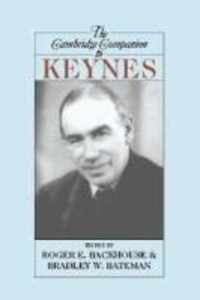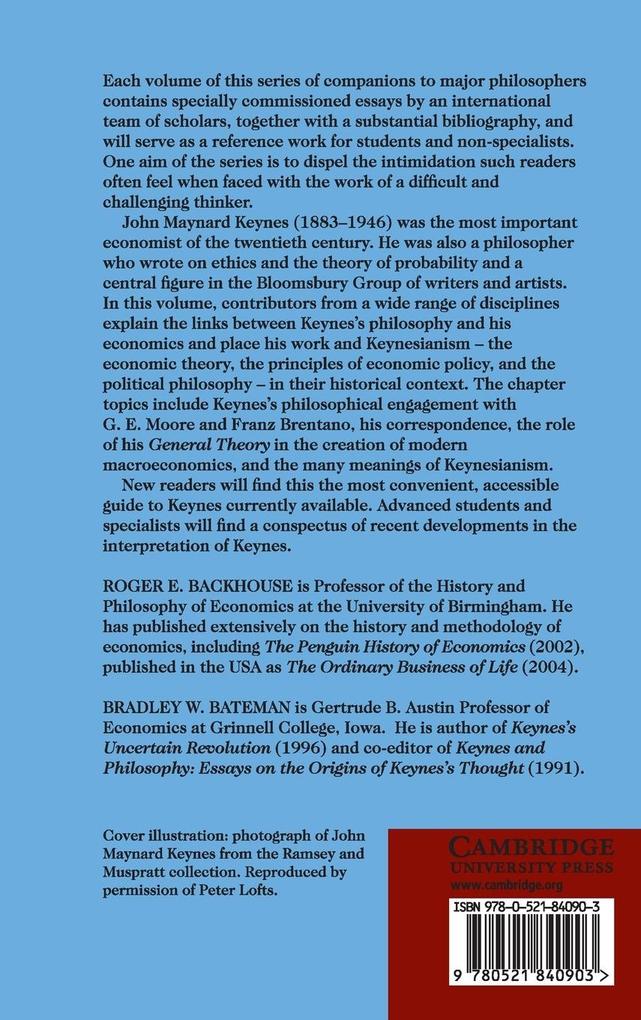John Maynard Keynes (18831946), the most important economist of the twentieth century, was also a philosopher who wrote on ethics and the theory of probability and was a central figure in the Bloomsbury Group of writers and artists. In this volume, contributors from a wide range of disciplines offer new interpretations of Keyness thought, explain the links between Keynes's philosophy and his economics, and place his work and Keynesianism - the economic theory, the principles of economic policy, and the political philosophy - in their historical context.
Inhaltsverzeichnis
1. A cunning purchase: the life and work of Maynard Keynes Roger Backhouse and Bradley Bateman; 2. The Keynesian revolution in economic theory Roger Backhouse; 3. Keynes and the birth of modern macroeconomics David Laidler; 4. Keynes as a Marshallian Axel Leijonhufvud; 5. Doctor Keynes: economic theory in a diagonistic science Kevin Hoover; 6. Keynes and economic policy George Peden; 7. Keynes and Cambridge Maria Cristina Marcuzzo; 8. Keynes and his correspondence Donald Moggridge; 9. Keynes and philosophers Tiziano Raffaelli; 10. Keynes and probability Donald Gillies; 11. Keynes and ethics Thomas Baldwin; 12. The art of an ethical life: Keynes and Bloomsbury Craufurd Goodwin; 13. Keynes between modernism and post modernism Matthias Klaes; 14. Keynes's political philosophy Samuel Brittan; 15. Keynes and Keynesianism Bradley Bateman.











